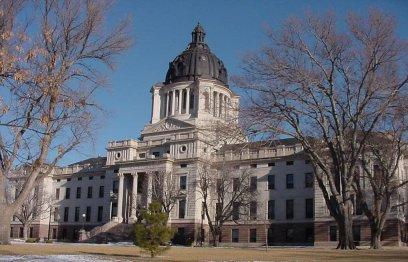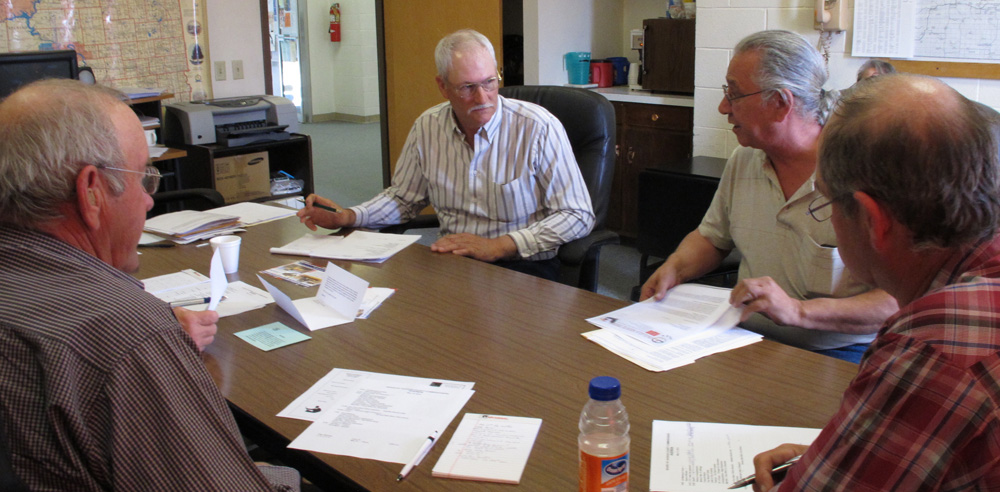Elephants, Donkeys, Billionaires—and Another Stunning Native Vote Win

Recently, we learned about two Native voting-rights wins in one day in Montana. Today, we turn to the neighboring state of South Dakota for the third breakthrough that same day.
RELATED: Slammin’ Judges, Gunslingers—and Stunning Native Voting-Rights Wins
On January 22 in Pierre, a state senate committee was considering a bill to prevent non-governmental groups from helping cash-strapped counties afford early-voting offices on Indian reservations. The proposed ban was the brainchild of South Dakota’s secretary of state and top elections officer Jason Gant.
Part of the state’s Republican administration, Gant has also opposed using Help America Vote Act (HAVA) funds to assist Native voting and fought (unsuccessfully) in federal court to curtail early voting on the Pine Ridge Indian Reservation.
RELATED: Judge Rules in Favor of Oglala Voting-Rights Plaintiffs
Testifying before the committee, Gant called the donations part of a “slippery slope.” He raised the specter of “a billionaire coming from New York” and chucking money and influence around the state. Skeptical committee members got Gant to admit that the only non-governmental entity helping fund precincts of any kind is a small in-state Native voting-rights nonprofit called Four Directions. Gant also acknowledged that without Four Directions donations, “I wouldn’t know what the future would hold for those places.”
RELATED: South Dakota Working Hard to Make It Harder For Natives to Vote
Four Directions head OJ Semans, who is Rosebud Sioux, testified against the bill, calling voting “the bedrock of our democracy” and pointing to the value of participation. Said Semans: “To improve their social and economic conditions, tribes and tribal members have to participate in the electoral process.”
Semans added that approving the bill and cutting off the early-voting offices would tell Native citizens, “We don’t want you to participate.”
More opposing testimony came from Rep. Kevin Killer, Oglala (D-Shannon County), and Rep. Troy Heinert, Rosebud Sioux (D-Todd and Mellette counties). Said Heinert: “Native voters have a lot of problems getting to the ballot box, and this bill would create another hurdle.”
One Republican senator brought up the “elephant in the room”: the Native vote is overwhelmingly Democratic, and increasing Native turnout increases Democratic ballots.
Other senators on both sides of the aisle saw increased access as a plus and local control as the ruling factor. Said Senator Jean Hunhoff (R-Yankton), “If local governments have decided [accepting donations is] a way to increase access, they should be allowed to make that decision.” Senator Angie Buhl O’Donnell (D-Sioux Falls) agreed: “There’s a need for more voting access, and this is a way to solve it.”
In the end, the committee’s bipartisan five-to-one vote against the proposal astonished political watchers more accustomed to this red state’s hostility to the Native vote and, more generally, to the state’s largest minority group. “By the time the meeting was over, most everyone was talking equal access to voting,” recalled Semans.
“I’m delighted that the committee saw this bill for what it was, which is a solution in search of a problem,” said Sioux Falls attorney and state elections board member Richard Casey. He reported that the state’s HAVA Task Force is working on language that would allocate funding for early-voting satellite offices on reservations and in other communities that meet certain criteria (poverty, distance from county seats and more).
However, South Dakota isn’t singing Kumbaya yet. Republican rainmakers appear to be talking about re-introducing the failed senate bill, along the theory that it’s not dead-dead until the legislative session is over in March. A call to Secretary of State Gant revealed that he was in a meeting and couldn’t comment, according to state elections coordinator Brandon C. Johnson. About reintroducing the senate bill, Johnson said, “Honestly, I haven’t heard a thing.”
This article was written with support from the George Polk Center for Investigative Reporting.
Comments:© 1998 - 2014 Indian Country Today. All Rights Reserved To subscribe or visit go to: http://www.indiancountry.com
Read more at http://indiancountrytodaymedianetwork.com/2014/02/05/elephants-donkeys-billionaires-and-another-stunning-native-vote-win-153252?page=0%2C1
